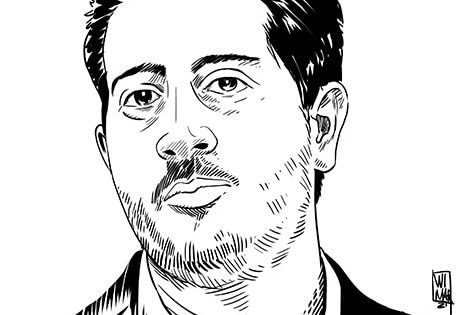(IAPA/IFEX) – The following is a 30 October 2001 IAPA press release: Cuban journalists forced to suspend journalistic training Offices of independent journalists’ organisation still under surveillance Miami (30 October 2001) – The Inter American Press Association (IAPA) strongly condemned the Cuban government’s continuous harassment and surveillance of an independent journalists’ organisation. The organisation’s members […]
(IAPA/IFEX) – The following is a 30 October 2001 IAPA press release:
Cuban journalists forced to suspend journalistic training
Offices of independent journalists’ organisation still under surveillance
Miami (30 October 2001) – The Inter American Press Association (IAPA) strongly condemned the Cuban government’s continuous harassment and surveillance of an independent journalists’ organisation. The organisation’s members were prevented from giving training courses.
The IAPA was informed in a telephone call from Havana by Ricardo González Alfonso, president of the association Sociedad de Periodistas Manuel Márquez Sterling, that on Monday Raúl Rivero was prevented by Cuban state security agents from giving a training course on journalism at the offices of the organisation, which brings together non-mainstream journalists. Rivero is vice-president of the IAPA’s Committee for Freedom of the Press and Information for Cuba and was recently elected to the IAPA’s Board of Directors.
IAPA President Robert J. Cox, of the Charleston, South Carolina newspaper The Post and Courier,
noted that “these kinds of restrictions, which suggest that the debate of ideas and training are considered illegal, are a form of intellectual censorship and a direct attack on human rights.”
Cox also referred to the 16 October resolution approved in Washington, D.C. by the IAPA’s General Assembly in which the hemispheric organisation condemned the utter lack of freedom of expression and the press in Cuba. The president of the IAPA’s Committee for Freedom of the Press and Information, Rafael Molina, of the Santo Domingo, Dominican Republic publication Ahora, recalled that in the document the IAPA urged Cuban authorities to dismantle the mechanisms of repression and control that impede the development of independent journalism and the creation of media groups separate from the state; denounced the persecution of independent journalists and the sentences passed under the so-called Law for Dignity and National Sovereignty (gag law); and, demanded the release of Bernardo Arévalo Padron and José Orlando González Bridon, who are still imprisoned for attempting to exercise their right to express themselves freely.
Not only was Rivero prevented from giving a course, but in addition a number of individuals were warned that they must leave the organisation’s offices. These persons were Carmelo Díaz Fernández, director of the Cuban Independent Labour Agency (Agencia Sindical Independiente de Cuba), Pedro Pablo Alvarez Ramos, secretary-general of the Cuban Workers Council (Consejo Unitario de Trabajadores de Cuba), and journalists Víctor Manuel Domínguez García, Migda Graciela González Alfonso and Adolfo Fernández Sainz.
Journalist Carlos Castro, who was planning to participate in the course, was stopped at the entrance after refusing to answer the police’s questions on the street. Castro was forced to enter a government vehicle and was later abandoned in a community tens of kilometres away from Havana.
The workshop was originally scheduled for the middle of October and was postponed to 29 October as the result of government pressure. It would have included a discussion of a number of journalistic concepts and practical training in Spanish grammar and the English language.
González Alfonso, who was summoned to a state security office on Friday 26 October because he refused to cancel the classes, explained that no article of the Cuban Criminal Code prohibits studying. “Only teachers who charge for the classes they offer require a licence, therefore to be a student or professor in the courses set up by the association Sociedad de Periodistas Manuel Márquez Sterling is not an illegal act,” he noted.


